Recent studies show a lower-sodium diet helps reduce the risk of stroke
Key Takeaways
- Someone dies of a stroke every 3 minutes 30 seconds.
- There are clear links between high-sodium diets and the risk of stroke
- A stroke is a very serious event that can have lifelong complications, even if you survive it
- Most sodium is added during food prep and manufacturing, not at the table
- Keeping your sodium intake below CDC-recommended levels can help prevent you from being part of these stroke statistics
The process of aging is associated with an increased risk for stroke and heart disease. But are you aware that lowering your sodium intake could reduce your stroke risk by about 30%? Learn how you can lower your stroke risk by managing your daily sodium intake.
Stroke is one of the leading causes of death in the United States. It is also one of the leading causes of “disability-adjusted” life-years globally, according to a Global Burden of Disease Study. Hypertension, which is strongly related to dietary sodium intake, is a major risk factor for stroke and may account for up to 54% of stroke cases.
The link between sodium & stroke
A stroke occurs when blood supply to some parts of the brain is curtailed by the tightening and weakening of blood vessels. Brain cells may begin to die in the process, making this a medical emergency. Common symptoms of a stroke include speech difficulties, memory loss, numbness or paralysis, and poor coordination. Treatment is usually focused on minimizing brain damage and limiting complications.
Is the seemingly harmless saltshaker an innocent bystander in all this?
While it may seem normal for you to reach out for the saltshaker even before tasting the food, the long-term consequences can be dire. Sodium is essential for health. It plays a key role in maintaining blood volume and helps your nerves and muscles work properly.
The CDC recommends a daily sodium intake of 2,300 mg while those with a higher risk for hypertension should reduce this to 1,500mg. Most Americans consume at least 3,400 mg of sodium daily, and most of it comes from consuming processed foods.
Consuming high amounts of sodium leads to fluid retention and consequently an increase in blood pressure. Studies have shown that once salt intake is reduced, blood pressure begins to reduce within a few weeks in most people. Increased blood pressure may cause blood vessels to block or even burst and, in the process, cause a stroke. The American Heart Association (AHA) has highlighted the need for population-wide sodium reduction strategies as a means of curbing cardiovascular diseases and stroke.
What are the complications of a stroke?
“Every 3.5 minutes, someone dies of a stroke,” according to the CDC.
Strokes are usually debilitating but may also be fatal. Some of the complications that may arise following a stroke include:
- Paralysis
- Pain or numbness
- Memory loss and impaired thought process
- Speech difficulties
- Difficulty swallowing
- Other Cognitive disorders
Some good news: Chinese study shows that low-sodium salt lowers stroke risk
A large and randomized trial that was carried out in rural China found that using low-sodium salt led to reduced incidences of stroke and resultant deaths. This study involved 20,995 people from 600 villages. Of these, 72.6% had experienced a stroke and 88.4% had a history of hypertension.
Half of the study participants were assigned ordinary salt while the other half were given sodium-reduced salt to use (75% sodium chloride and 25% potassium chloride by weight). After slightly less than 5 years, it was found that the participants who used sodium-reduced salt experienced a 13% lower incidence of strokes than those who continued using ordinary salt.
Importantly, reduced-sodium salt did not appear to increase the risk of hyperkalemia, which is dangerously high levels of potassium in the blood.
Widespread use of low-sodium salt could be a practical, inexpensive way to improve heart health and reduce strokes worldwide.
How much sodium should you consume?
The more salt you consume, the higher your chances of developing high blood pressure and having a stroke or other complications. Steven Greenberg, MD, Ph.D., and professor of neurology at Harvard Medical School, states that making small reductions in your salt intake can significantly reduce your risk of a stroke.
The recommendation by the American Heart Association is 1,500 milligrams of sodium/day. The U.S. Dietary Guidelines for Americans recommend less than 2,300 milligrams/day for healthy people and 1,500 milligrams/day for people over 50 and those with diabetes, hypertension, or chronic kidney disease. WHO recommends 5 grams of salt, which should contain about 2 grams of sodium, daily. This amount can be obtained from roughly one level teaspoon of salt.
How to reduce your daily sodium intake
Reducing your sodium intake will reduce your chances of having a stroke. This can be achieved by taking deliberate steps to consume less salt. Some of the things you can do to lower your sodium intake include:
- Avoid having salt on the dining table as this can tempt you to overindulge. You can leave the salt in the kitchen.
- Substitute salt with fresh herbs and spices as seasonings.
- Choose fresh foods over processed foods as the latter tend to have more sodium.
- Carefully scrutinize food labels and pick ones with low sodium levels.
- Ditch salted snacks or replace them with full-flavor, lower-sodium options.
MicroSalt® = The easy way to keep your sodium intake in check
Lowering your sodium intake does not mean you have to endure flavorless meals. MicroSalt® micro-sized salt-like particles offer double the flavor of salt but contain 50% less sodium. This means your flavor needs are met 100% but with a staggering 50% less sodium intake. Isn’t this the ultimate panacea for reducing your stroke risk saltfully yet sweatlessly?
Our team strives to create a new food industry norm where good health doesn’t come second to great taste. MicroSalt is a proud global winner of the P&G Alumni Network’s 2021 Star Entrepreneur Award. We’d love to take part in making your product the best it can be. Simply contact us via our message page, connect with one of our international offices, or call 1 877 825 0655 to learn more.




